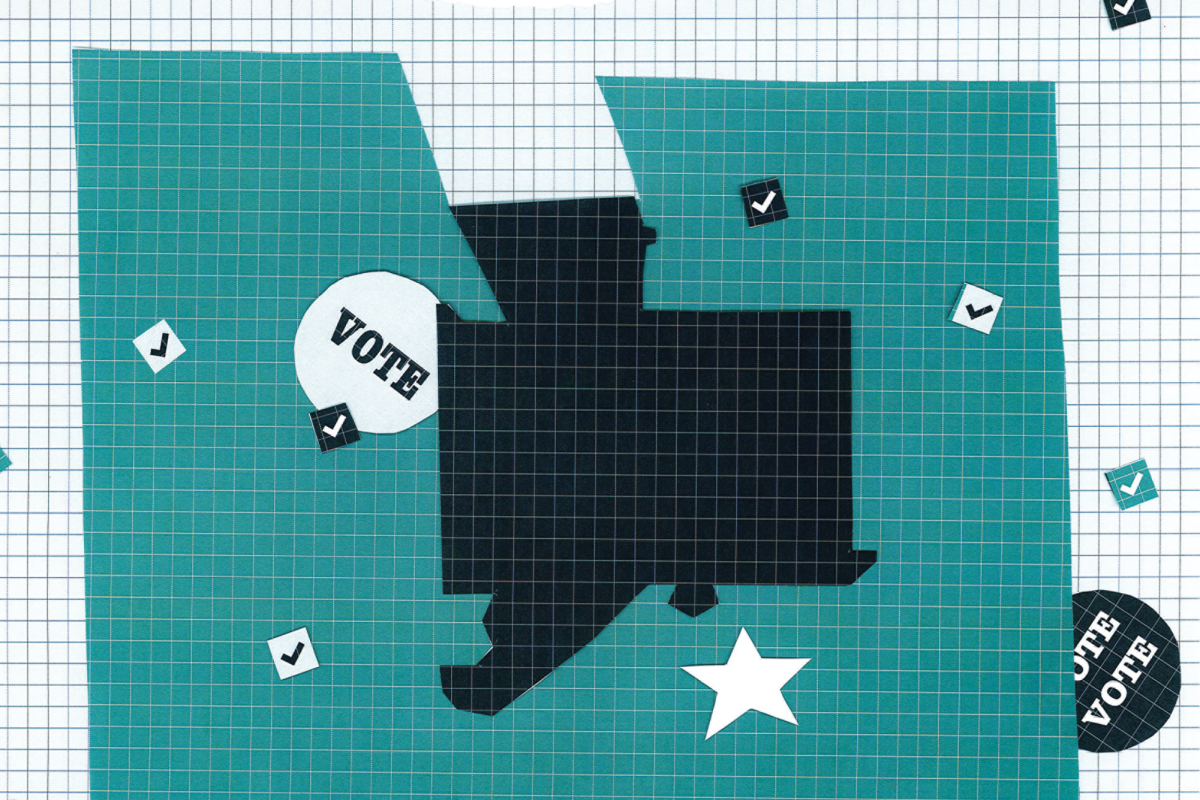This story was updated July 21 at 2:35 p.m. ET and July 27 1:02 p.m. ET. The headline was changed to accurately reflect the developments in the lawsuit.
Ithaca College filed a memorandum July 25 in further support of dismissing the case filed by Brad Hougham, a professor in the Department of Music Performance.
The college’s legal team contends in the memorandum that Hougham’s claims of Title IX discrimination are not viable under the case’s circumstances, stating that claims of employment discrimination fall under Title VII instead. The reply memorandum states that Hougham “never participated” in the Title IX disciplinary process.
The college’s legal team states in the memorandum that Hougham’s claims of Title VII discrimination should also be dismissed because he allegedly failed to complete the procedures necessary to file a complaint under Title VII. According to Title VII guidelines, individuals in New York state have up to 300 days from the day of the discrimination occurring to file complaints of discrimination to the Equal Employment Opportunities Commission.
Hougham filed a memorandum in opposition to Ithaca College’s motion to dismiss his civil lawsuit July 18.
The memorandum claims that 36 out of the 37 cases cited by the college’s legal team to argue against Hougham’s claims are from federal courts outside the 2nd U.S. Circuit Court of Appeals — the court of appeals that covers all districts of New York. Hougham claims that many cases in the 2nd U.S. Circuit Court of Appeals hold that either Title VII or Title IX may be used to vindicate his complaints of sexual harassment.
Hougham contends that Title VII does not prevent his Title IX claims of a hostile educational environment, deliberate indifference and retaliation.
The memorandum says that some of Hougham’s claims relating to certain acts of alleged sexual harassment from Melanie Stein, provost and senior vice president for academic affairs, and failures of other non-party actors fall outside of the three–year statute of limitations, the time limit of eligibility for his claims. Hougham argues that the court could consider the claims outside of the statute of limitations by employing the continuing violation doctrine, where a plaintiff may bring claims for discriminatory acts past the statute of limitations if an act contributing to the discrimination took place during the statute of limitations.
The college filed a motion to dismiss the civil lawsuit filed by Hougham. The college released its response to the claims made by Hougham on June 27. The lawsuit filed by Hougham claims that he allegedly faced an anti-LGBTQ+ work environment on campus and that the college intentionally ignored and retaliated against his complaints of sexual harassment, in violation of Title IX.
In the response, the college’s legal team cited 37 past court cases to argue against the claims made by the plaintiff. The college alleges that Hougham’s claim is “one for pure and unvarnished employment discrimination, and related workplace hostility,” which would be covered by Title VII. Title VII is a federal law that forbids employment discrimination based on sex, religion, color, race and national origin.
Hougham did not respond to The Ithacan’s request for comment in time for publication, and Hougham’s lawyer has previously declined to comment on pending litigation.
The college’s response states that Hougham allegedly admitted to not submitting for Title VII in a timely manner, so he is no longer eligible to pursue a Title VII violation.
“Plaintiff’s claim relates strictly to employment and has nothing whatsoever to do with the College’s Title IX policy, procedure, or purpose,” the college’s response states.
The college’s attorneys pointed out that some of Hougham’s alleged Title IX claims were not made within the mandated timeline. Title IX has a three-year time limit of eligibility in New York and some of the claims made by the plaintiff are older than three years. The college also states that Hougham provided no concrete evidence that the claims he is making are accurate.
Hougham alleged that Stein exclaimed that he was “too sensitive,” “too thin skinned,” “too dramatic” and needed to be “tougher.” The college stated in its response that Hougham “speculates that these are code phrases for “[y]ou are too gay,” although none of those terms mention, or are indicative of, sexual orientation.”
Stein did not respond to The Ithacan’s request for comment in time for publication and has previously directed The Ithacan to Emily Rockett, vice president, general counsel and secretary to the Board of Trustees. Rockett has previously said via email that the college does not comment on pending litigation or confidential personnel matters.
The defendant’s argument
The college’s attorneys broke up their argument into four parts. The first part of the argument is “The Rights and Remedies Under Title VII Preclude Claims for Employment Discrimination Under Title IX.”
According to the college’s response, Hougham’s claim for discrimination was not in the context of a disciplinary proceeding under Title IX, no Title IX proceedings were convened and there was no Title IX investigation.
“Plaintiff’s claim for employment discrimination under Title IX is a blatant effort to end run the procedural requirements of Title VII, and that end run should be closed off by this Court,” the college’s response states.
The second part of the argument is “Several of the Alleged Discriminatory and Retaliatory Acts are Nonactionable.” The college lists here the claims made by the plaintiff that exceed the three year limit within Title IX which include, “Plaintiff’s alleged report of Dr. Stein’s “homophobic impression of plaintiff to College officials” and “Dr. Stein’s alleged “blocking [of] plaintiff’s candidacy for appointment as dean within the School of Music, Theatre and Dance, by her refusal to allow plaintiff an interview for that position.” The college argues that these claims are non-actionable because they allegedly occurred before April 30, 2022.
The third part of the argument is “Plaintiff’s Title IX Claim Fails Because He Pleads No Facts Supporting an Interference of Discriminatory Animus, Severe or Pervasive Conduct, or Deliberate Indifference.” The college’s attorneys believe that there is not enough concrete evidence to prove Hougham’s claims for them to stand in court. They also claim that the conduct was not severe or pervasive and that the college did not act with deliberate indifference. Hougham also did not claim severe and pervasive conduct. Those are all legal requirements for a Title IX hostile environment claim to be upheld.
For example, as noted in Hougham’s original claim, the college allegedly created a committee called the Faculty Advisory Group (FAG) which Hougham said could be perceived as a shortened form of an offensive, homophobic slur.
“While Dr. Stein’s alleged conduct and remarks could certainly be deemed rude, the use of the “FAG” acronym could be deemed insensitive, and the other incidents could be deemed a diminishment of plaintiff’s role and responsibilities, none of it is sufficient to support a hostile environment claim under Title IX,” the college’s response states.
The last part of the argument is “Plaintiff Cannot Recover Emotional Distress Damages Under Title IX.” The response references a previous Supreme Court ruling that determined that plaintiffs cannot recover emotional distress damages in private lawsuits such as Title IX.
“Accordingly, in the highly unlikely event that any of plaintiff’s Title IX claims survive, plaintiff’s demand seeking to recover alleged damages for “mental and physical pain and suffering” should be stricken,” the college’s response states.
After reviewing the defendant’s response, Hougham’s attorneys must file opposition, if any, on or before July 18. The college then must serve its reply papers, if any, on or before July 25.


















